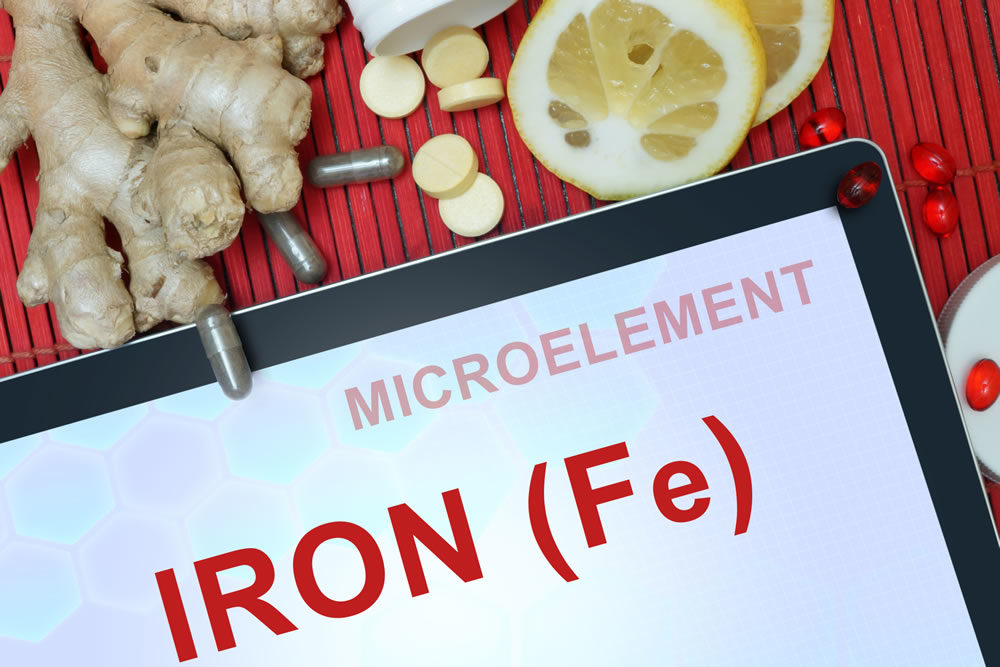
WholeFoods Magazine
Iron Toxicity Almost Never Happens And Is Highly Exaggerated

The toxicity of supplemental iron is highly exaggerated.
While I have read the words of people who are regarded as nutrition experts, including Dr. Joseph Mercola and Dr. Andrew Weil say, "Don't take iron because it's toxic," this notion is easily shown to be incorrect.
Iron in multi-vitamin formulas and iron supplements are confirmed by US government agencies to provide doses of iron that are too low to create toxicity for normally healthy Americans.
For instance, the National Academy of Sciences' Institute of Medicine says that iron has a No Observed Adverse Effect Level (NOAEL) of 65 mg per day. This is a dose where toxicity does not occur when taken by normally healthy adults over a long period of time.
The Institute of Medicine also says that iron has a Lowest Observed Adverse Effect Level (LOAEL) of 100 mg per day. This is a dose where toxicity may be seen "rarely, but for some sensitive subgroups it may occur" when taken over a period of time.
There Are No Toxic Iron Supplements in American Stores
Surveying the shelves of health food stores and drug stores in the United States, you will find no multivitamin supplements that contain 100 mg of iron or even 65 mg of iron.
Therefore, there is no "toxic" iron in the over-the-counter marketplace in the United States.
Vegetable and Supplement Iron Don't Cause The Toxicity Possible with Red Meat Iron
Worth considering is that supplemental iron and dietary sources have been shown to absorb so poorly that they do not increase the risk of cardiovascular toxicity that highly absorbing heme iron from red meat might cause. [Ascherio A, et al. Dietary iron intake and risk of coronary disease among men. Circulation. 1994;89(3):969-974. Klipstein-Grobusch K, et al. Dietary iron and risk of myocardial infarction in the Rotterdam Study.” Am J Epidemiol. 1999;149(5):421-428. de Valk B, Marx JJ. Iron, atherosclerosis, and ischemic heart disease. Arch Intern Med. 1999;159(14):1542-1548. USDA National Nutrient Database for Standard Reference, Release 28;2015]
More details about this are provided by an excellent, fully-referenced article that debunks the myth that normal doses of supplemental or dietary iron cause health problems,while being required for optimal health.
Vitamin E Protects Against Lethal Iron Toxicity
Further, one animal study showed that having adequate vitamin E protected against iron overdose that causes lethal toxicity.
Doctors may prescribe 300 mg iron supplements, but this is done for medical reasons with the doctor monitoring the patient and conducting blood tests to be certain of the effects.
Iron Carbonyl - The Safest Form of Iron According to FDA
Iron carbonyl is documented to be the safest available form of supplemental iron, so if you're concerned about toxicity consider taking supplements that contain iron carbonyl.
Independently published studies confirm that iron carbonyl has many times less potential for toxicity than other commonly available forms of iron, even at very high doses, such as 10,000 mg a day.
Iron carbonyl is well-absorbed, easy on the gastro-intestinal system and two studies showed that iron carbonyl does not have the potential for lethal toxicity that other forms of iron have.
One of the studies concluded that iron carbonyl “…may have an advantage over other types of iron by substantially reducing or eliminating the risk of iron poisoning in children.”
In the Federal Register, dated January 15, 1997, after discovering iron carbonyl’s unique safety, the FDA gave consideration to not requiring that supplements that contain iron carbonyl employ child-proof packaging.
Because of its tremendous safety factor, iron carbonyl was the only form of iron FDA gave this consideration to.
However, after five years of deliberation, because no new studies had investigated iron carbony's safety, in the interest of prudence FDA decided to include iron carbonyl in its requirements for childproof packaging for all supplements that contain iron.
To read more about the safety of iron carbonyl please go to: http://www.michaelmooney.net/IronCarbonylFactSheet.pdf
 Michael Mooney is SuperNutrition's Director of Science and Education. http://www.michaelmooney.net/
Michael Mooney is SuperNutrition's Director of Science and Education. http://www.michaelmooney.net/
NOTE: The opinions expressed in bylined articles are not necessarily those of the publisher.
Posted on WholeFoods Magazine Online, 5/16/2016







